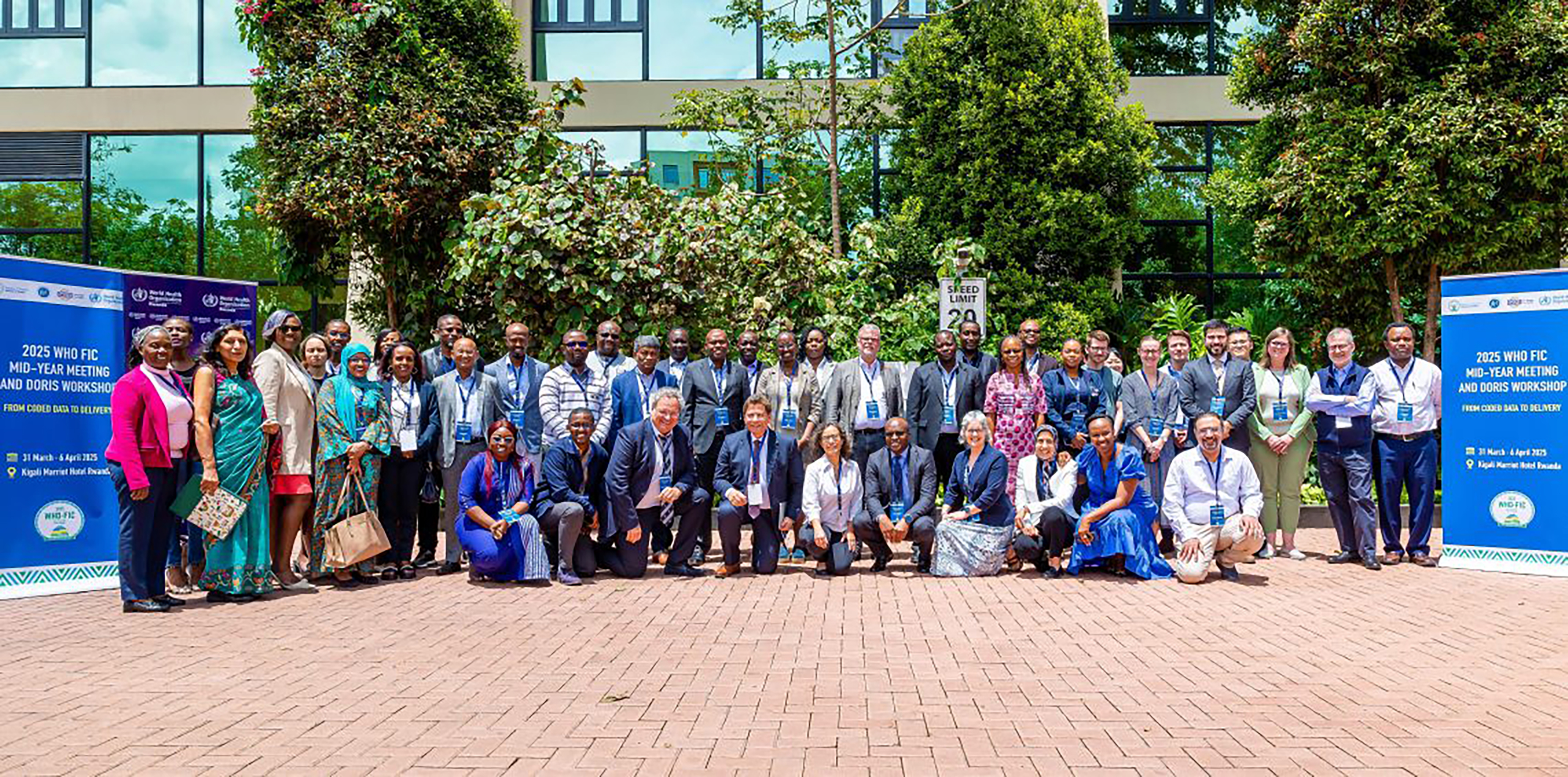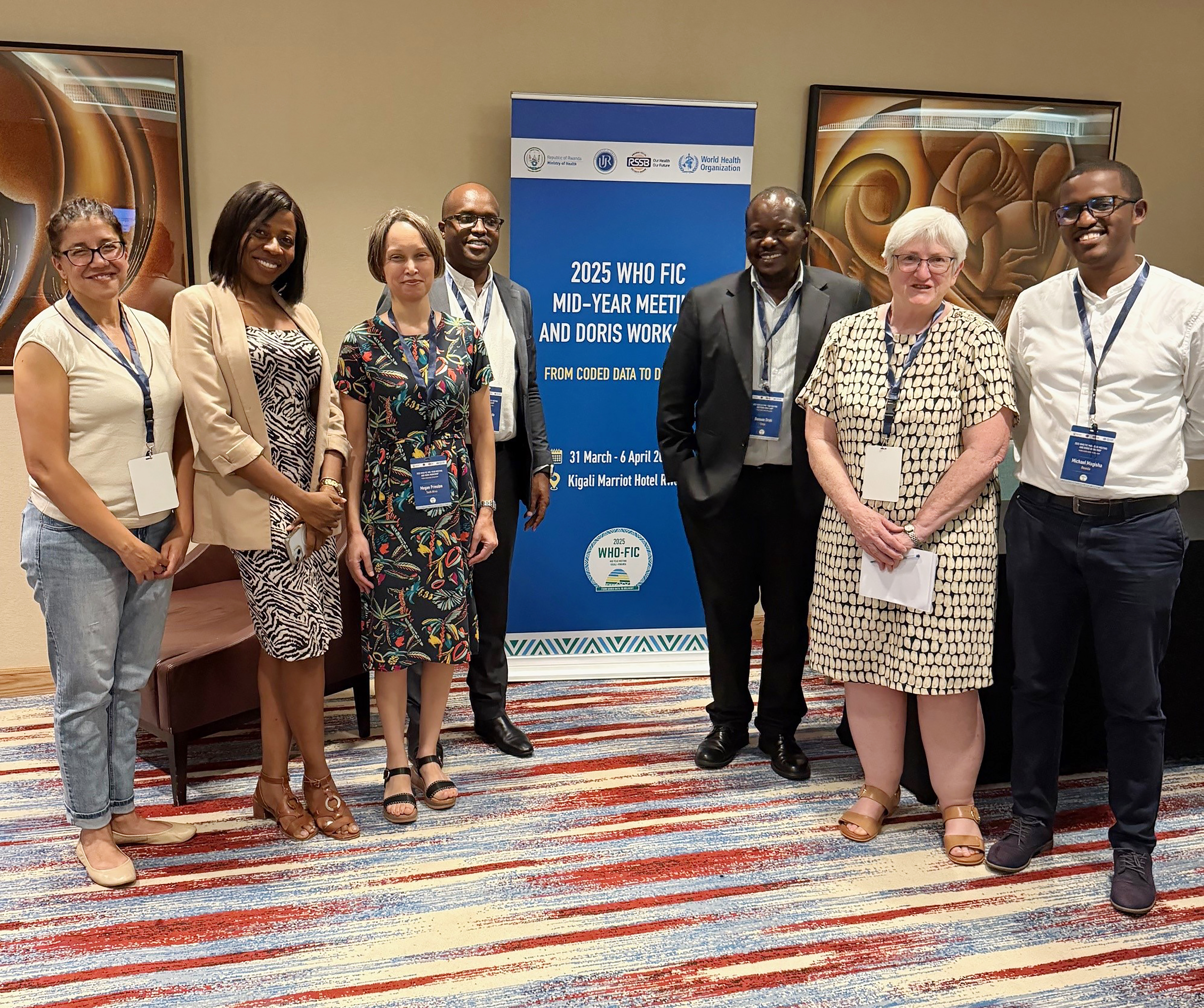(31 March to 4 April)
The officially designated South African World Health Organization - Family of International Classifications (WHO-FIC) Collaborating Centre (CC Ref no. SOA-52) is hosted within the South African Medical Research Council’s (SAMRC) Burden of Disease Research Unit (BODRU), and functions to support the development and implementation of the WHO-FIC across the African region, and through the global WHO-FIC Network. Previously co-headed by Prof Debbie Bradshaw and Dr Lyn Hanmer, the leadership has transitioned with Dr Megan Prinsloo being appointed co-Head together with Dr Hanmer in February 2025.
The network of WHO-FIC CCs meets annually with the WHO and agrees on a work plan for reference groups and committees, enabling systematic development and enhancement of the classifications and tools for their use. At the centre of the work is the ongoing maintenance and development of the International Classification of Diseases (ICD), the International Classification for Functioning, Disability and Health (ICF) and the International Classification for Health Interventions (ICHI). The sub-groups aim to hold mid-year meetings to progress the programme of work with additional working meetings as required.
The 2025 Mid-year meeting was hosted by the Rwandan WHO-FIC CC in Kigali, with attendance from WHO Head-office and CC’s globally. Prof Debbie Bradshaw, Dr Natasha Kallis and Dr Megan Prinsloo attended varied work group meetings for the Morbidity- and Mortality Reference Groups (MbRG and MRG), while Dr Lyn Hanmer attended the MbRG online with Ms Eunice Turawa, and the inaugural online Health Intervention Reference Group (HIRG) meeting with Dr Warrick Sive (from Wits University, an Honorary SA WHO-FIC CC member). Ahead of the meetings, the WHO-FIC CC in BODRU offered orientation to the meeting’s activities for colleagues in the AFRO region as part of the established collaboration with the WHO-AFRO regional office.
The theme of this year’s plenary session was “From coded data to delivery” and provided a forum to launch the newly designated WHO-FIC Collaborating Centre in Africa based in Rwanda as well as the opportunity to launch AFRO’s online training tool for medical certification of cause of death. The content of the training, which included a module on ICD-11 was developed by the SA WHO-FIC CC and the online platform was developed by Nelson Mandela University. Queries on the online course can be directed to Dr Kallis within BODRU. Following the meetings, Prof Bradshaw and Dr Kallis also participated in the DORIS workshop for coding of cause of death data in-person from 5-6 April. More information on the Mid-year meetings can be found | here.

Community Practice for the Implementation of the WHO Family of Classifications in the AFRO region
In addition, collaborative work with the WHO-AFRO regional office has been evolving and the CC commenced with a series of webinars, together with colleagues from the Health Information System team of WHO AFRO, that aims to support countries in the African region to implement ICD-11, ICF and ICHI through sharing information about available digital tools and country experiences in the development and use of these classifications towards building a community of practice.
The first webinars were held in English and French for the African region and thus far garnered great interest. The next webinars are scheduled for 9 May 2025 and 27 June 2025, respectively and Ms Eunice Turawa can be contacted within BODRU, for an invitation to join the MS Teams meeting virtually.
Cognizant of the need to develop expertise and capacity to prepare for the implementation of ICD-11 in South Africa, the WHO-FIC CC is in the process of setting up a webinar series aimed at a local audience to share experiences in using ICD-11.
As work progresses toward meeting the United Nations Sustainable Development Goals, the WHO Family of International Classifications is pivotal in delivering Universal Health Coverage in the African region.
Read more about WHO-FIC CC South Africa | HERE
Read more about SAMRC Burden of Disease Research Unit | HERE

